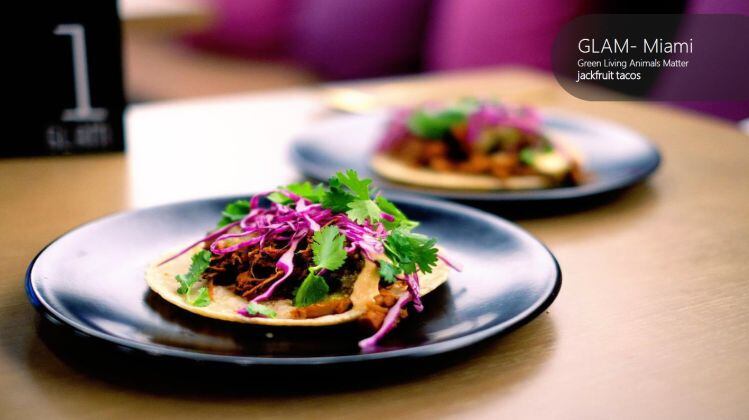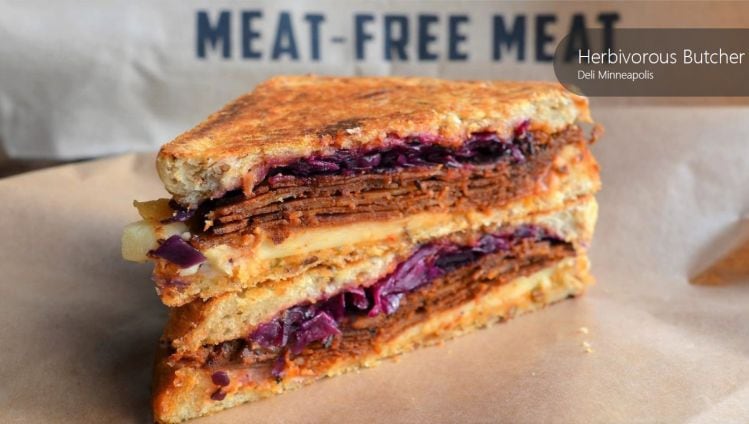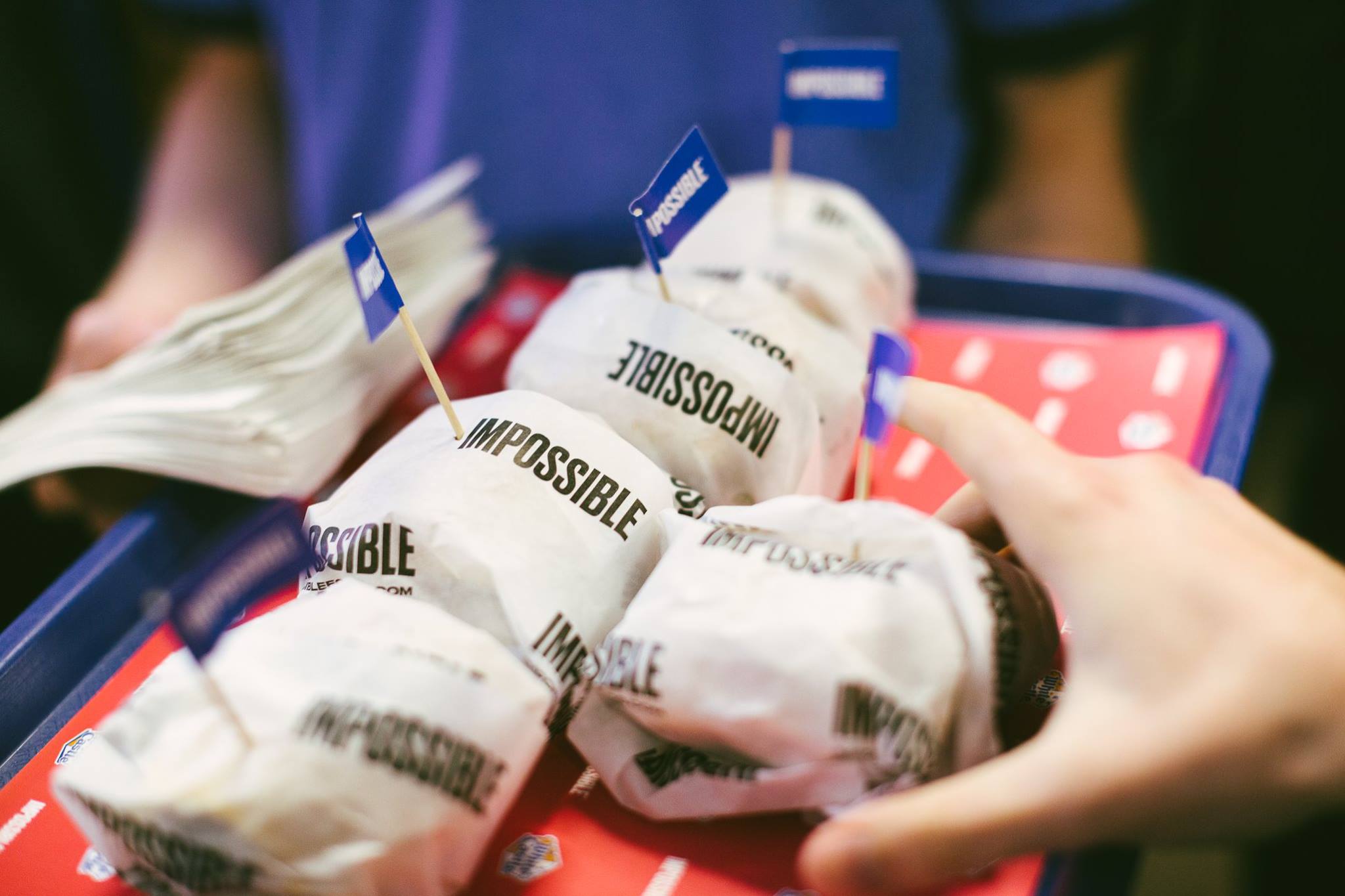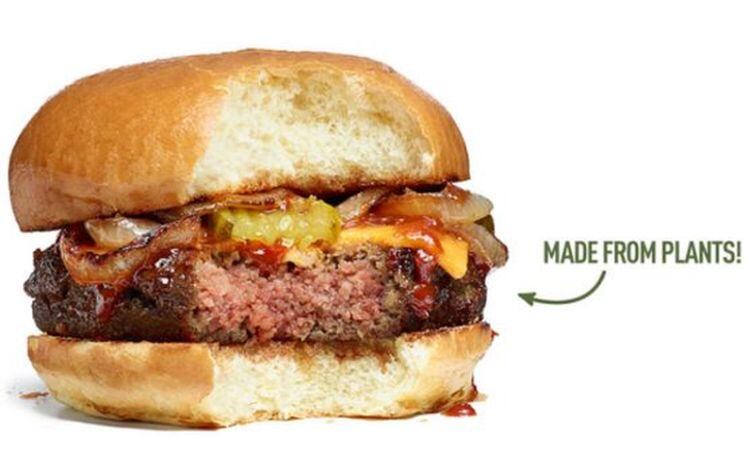“Just over the past year we’ve seen a big change," he told FoodNavigator-USA.
"It’s not just about chains adding the Impossible Burger or the Beyond Burger [two high-profile plant-based brands aiming to closely mimic meat] to the menu, but a lot have extended plant-based breakfast foods across the day, which means you can buy things like oatmeal, bagels and smoothies all day. We’ve also seen chains such as Chili’s add new plant-based dishes, such as a black bean and veggie fajitas dish to the menu."
He added: “We’re having conversations with several of the big chains about plant-based options and most of those conversations are under NDAs, but there is certainly interest from some of the largest players. They recognize that this is a trend that isn’t going away and we’re talking to them about concerns on price, supply chain and other things that may be barriers, but there are things coming – I think it’s going to be one of those cases that when it rains, it pours.
“There is nothing more compelling to a restaurant than seeing one of your competitors experiencing success with a plant-based launch, and there have been a number of high-profile launches lately.”
He added: “We’re also talking to chains that might have a plant-based option on the menu such as a black bean burger or a tofu dish just to check a box for vegan or vegetarian diners, to see if they can offer something more exciting as a lot of consumers have a negative view of tofu [in part because it may not have been prepared in a very creative fashion, he acknowledged]. We don’t want plant-based foods to be an after-thought, we want to appeal to a more mainstream audience.”
Is it commercially viable for the top fast-food chains to stock a plant-based option?
That said, space constraints are a challenge for the big fast food chains, which have a limited menu and food preparation space, and each menu item must carry its weight, he said.
Put another way, even if there is demand for plant-based options from some segments of the customer base at these chains, their business models force them to focus on a limited number of top sellers, he acknowledged.
However, some chains have introduced limited time offers and regional launches to test demand, he said. Others [eg. Taco Bell] plan to highlight plant-based options that are already on the menu, but have not previously been flagged as such - as well as launching new lines.
‘People will start to see plants as filling and delicious, providing protein and satiety’
Whether restaurants should focus on providing plant-based versions of the top-selling meat dishes, (burgers, tacos, burritos, hotdogs, chicken salad) or whether they should focus on ethnic dishes that happen to be vegan (chickpea curry) or develop new dishes that are a little more adventurous (jackfruit tacos, sausage & harissa cauliflower, cashew cheese boards) depends on the clientele, he said.
“Going directly from a McDonald’s-style hamburger to a chickpea curry is not all that plausible for a mainstream chain, but if you start with intermediate products like the Beyond Sausage or the Morningstar meat lovers burger, then down the road your customers might be more interested in that chickpea curry,” added Weston.
NPD Group: ‘It’s possible that protein overall is evolving into a category’
His comments came as NPD Group reported that case shipments of plant-based protein from broadline foodservice distributors to foodservice operators increased by 20% in the year ending November 2018 vs the previous 12 months, with all census regions showing double-digit growth.
Burgers still represent the largest plant-based foodservice category, said NPD Group, which said smaller, more affluent households were the top buyers of plant-based burgers.
“Plant-based proteins are no longer just a meat replacement, it’s now its own category,” said David Portalatin, NPD food industry advisor and author of Eating Patterns in America.
“It’s possible that protein overall is evolving into a category, whether animal meat, beans, nuts, soy, wild game or other proteins, in forms ranging from beverage to center-of-plate.”
Beyond beef… where is the ‘breakout’ plant-based chicken, seafood, or egg dish?
Plant-based foods are one of the fastest growing segments in retail and foodservice, added GFI director of corporate engagement Alison Rabschnuk, noting that 50% of millennials eat meat alternatives more than once a week, while the word ‘vegan’ now features on 11% of US menus. US retail sales of plant-based meat, meanwhile, grew 23% in 2018 (vs 2017), reaching over $760m.
However, none of the big foodservice chains has (yet) featured a “breakout plant-based chicken, seafood, or egg dish,” she claimed [although the mung-bean based Just Egg is now on the menu at chains including Veggie Grill].
“The brands that launch these kinds of dishes first will gain a lot of positive PR and attention on social media and will open themselves up to new customers looking for more plant-based variety.”
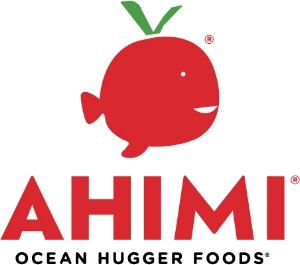
Poké franchise LemonShark Poké has begun testing vegan tuna (branded Ahimi) from plant-based seafood specialist Ocean Hugger Foods in three stores ahead of a nationwide rollout, says co-founder Tobi Miller.
"We're thrilled to have found the perfect plant-based tuna with Ahimi and look forward to seeing how it is received in our three test stores with the hope of introducing it to all of our restaurants across the country.”
Ahimi - ideal for sushi, poke, wraps, bowls and salads - is made from fresh Roma tomatoes, non-GMO soy sauce, filtered water, sugar and sesame oil, and tastes uncannily like raw tuna, Ocean Hugger Foods CEO David Benzaquen told FoodNavigator-USA.
"This is not an extruded protein isolate; we start with fresh Roma tomatoes. There’s a complex mechanical proprietary process we use with all our vegetables to eliminate the flavor – the acidity in tomatoes, the sweetness of carrots and the bitterness of the eggplant - and create a firmer texture that mimics the experience of biting into raw fish, and from there we can layer on any flavor we want. We sell it frozen and chefs can thaw and cut it the same way they would raw fish."
‘If you see a vegetarian section on a menu and you’re not a vegetarian, you’ll move straight past it’
As for marketing plant-based menu items, the key is presenting them as mainstream and delicious, rather than pigeonholing them in a carved out section of the menu targeting diners on special diets, said Weston.
“If you see a vegetarian section on a menu and you’re not a vegetarian, you’ll move straight past it. All the research suggests it’s best to integrate these items on the main menu, and promote them as enticing and delicious, not something that represents a sacrifice."
Adding a vegan or vegetarian symbol is fine, he said, but don’t make the fact that something is vegan the primary selling point.
“Vegan or vegetarian describes a lifestyle and an attitude, almost a type of person, so we recommend using terms that are more descriptive of the products themselves.”
"Meat elimination is highest among Millennials, Gen Z, and women. Flexitarian eating is highest among women, Gen Y, Gen X and Boomers, so represents a broader market. This is not say males are not interested [in plant-based options], but they are more aligned with flexitarianism than elimination."
"The top motivations for limiting meat intakes are:
- 'Wanting more variety in my diet than meat...'
- 'Non-animal protein help me keep a healthier lifestyle (lower calories, sat fat etc)...'
- 'To help my kids eat more veggies and plant-based options...'
"So, marketing should lead with personal health benefits and taste first, as animal welfare and planet are 4th and 6th in the ranking."
Colleen McClellan, director, client solutions, Datassential
Datassential: ‘The words vegan and vegetarian are the kiss of death for some consumers’
Speaking at the Plant Based Food Innovation Summit organized by innovation consultancy Mattson last year, Colleen McClellan, director, client solutions, at foodservice market researcher Datassential, said a growing number of foodservice operators now actively use the terms ‘plant-based’ or ‘plant-forward’ on menus.
Others prefer not to dwell on a dish’s animal-free credentials but focus instead on calling out specific ingredients (maitake, chia, fava bean, spirulina), buzzwords (‘super food bowl,’ ‘super salad’) or cuisine types (Ethiopian, Indian) where the dish in question just happens to be vegan or vegetarian, she said.
“Vegan foods aren’t just for vegans anymore, but plant-based must be crave-worthy,” added McClellan, showing an uninspiring picture of a generic garden-type-burger on a restaurant menu and comparing it with pictures of the Beyond Burger and the Impossible Burger, plus Sonic’s blended burger (made with a blend of beef and mushrooms): thick, juicy, meaty-looking burgers sitting next to their 100% meat-based counterparts.
And while consumer survey data suggests that consumers believe plant-based is healthier, savvy restaurant operators featuring the latest generation of meat-free burgers (which are targeting meat eaters and vegans/vegetarians alike) are not shouting about health – or saving the planet - on menus, she said.
“It’s about deliciousness. The words vegan and vegetarian are the kiss of death for some consumers."
Datassential: 70% are actively trying to increase fruit and veggies; they just can’t figure out how to do it
But what does ‘plant-based’ mean to the average consumer?
While many of the column inches devoted to plant-based foods focus on meat, egg and dairy analogs, to many consumers, plant-based is mainly about eating more fruits and veggies, said McClellan.
“70% of consumers are actively trying to increase fruit and veggies; they just can’t figure out how to do it.”
Some chefs are also treating veggies like meat, offering cauliflower ‘steaks’ and ‘braised’ mushrooms or adopting terms used in butchery to talk about ‘meaty’ plants such as jackfruit, she added.
Datassential research also shows that purchase intent for some plant-based center-plate items increases when restaurateurs adopt more ‘meaty’ terminology on mock menus, added Mattson president and chief innovation officer Barb Stuckey.
"The more meat and chicken and fish vernacular you use the higher the scores, things like Applewood Smoked Porto’house with chard, Hot “Chicken” Fried Steak with avocado puree, Tomato “Tuna” with pickled ginger pears... it's about anchoring people with things that they love."

“We commissioned a third-party company to conduct a survey on who is ordering the Impossible Burger. The overwhelming majority of people who buy the burger (about 70%) are regular meat eaters." Read more HERE.
David Lee, chief financial officer, Impossible Foods
The GFI Good Food Scorecard
The GFI Good Food Scorecard – now in its second year – assesses the performance of the top 100 restaurant chains in the US based on the NRN's (Nation’s Restaurant News) proprietary ranking of the largest restaurant chains (which account for 32% of US restaurant sales) when it comes to plant-based credentials.
Points were given based on the number of plant-based entrées, as well as how those entrées were marketed to appeal to a mainstream audience, explained Weston (see criteria in box below).
In 2018, the top scoring restaurant chains were Jamba Juice, which scored 9 points for its multiple plant-based bowls and smoothies; White Castle, which scored 9 points for its veggie slider and the new Impossible slider; Panera, which scored 8.75 for its many plant-based entrées; Yard House, which scored 8.5 for its 10 dishes featuring Gardein’s plant-based chicken; and Chipotle, which scored 8 points for offering veggies and sofritas as protein options on all of its dishes.
Get more details on the scorecard HERE.
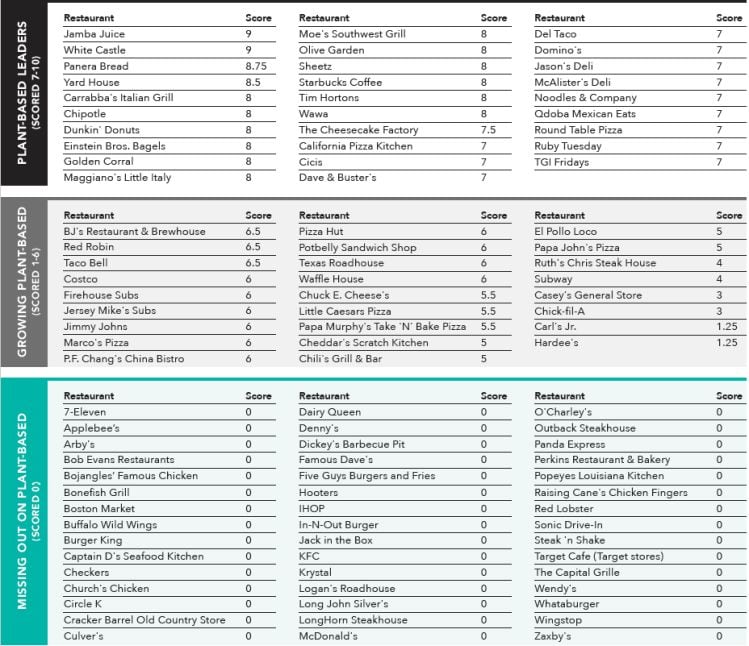
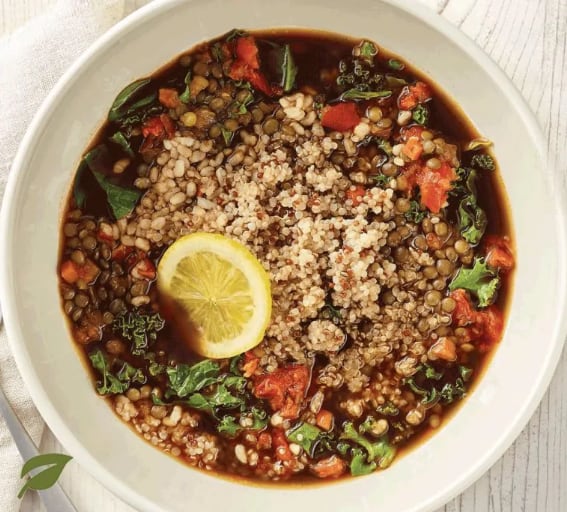
“We see plant-based eating as a long-term trend, with more consumers choosing less meat and more plants as the center of plate. Consumers continue to acknowledge the benefits of a plant based diet, from potential health benefits to reduced animal welfare and environmental impact. These changing consumer beliefs are driving many to incorporate plant-based items into their diet not just once a week, but often multiple times a week.
“This is accelerated by the growing availability of plant-based, highly craveable menu items hitting the marketplace.”
Panera spokesperson, January 2019 (Picture: Panera vegan lentil quinoa broth bowl)

